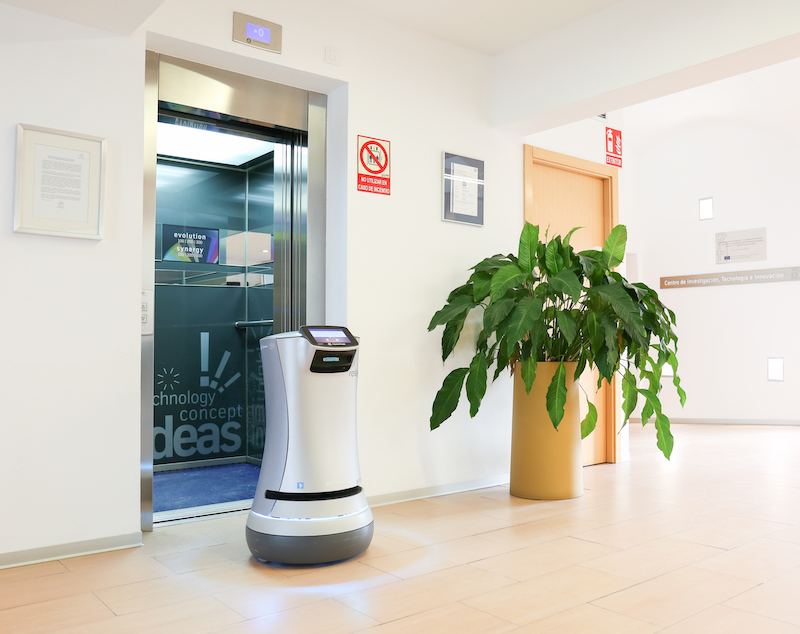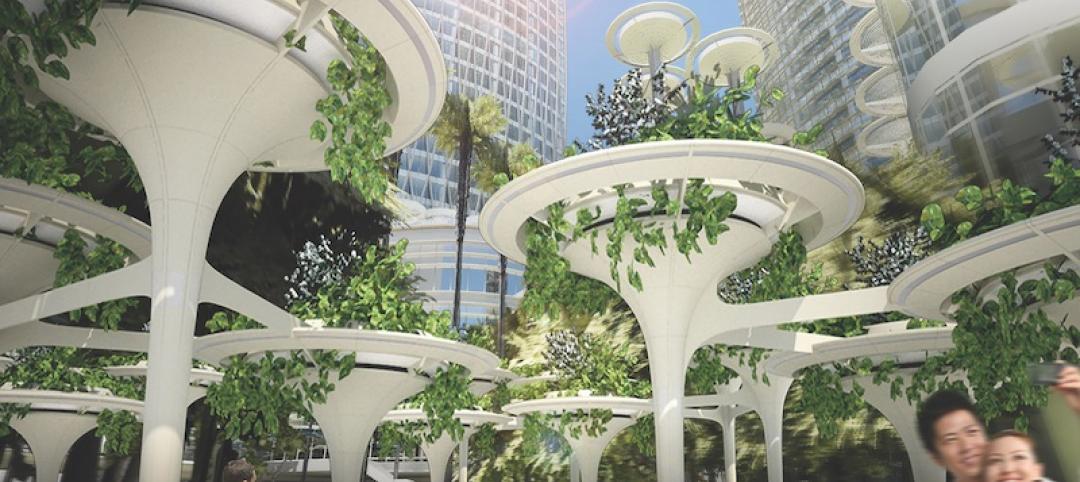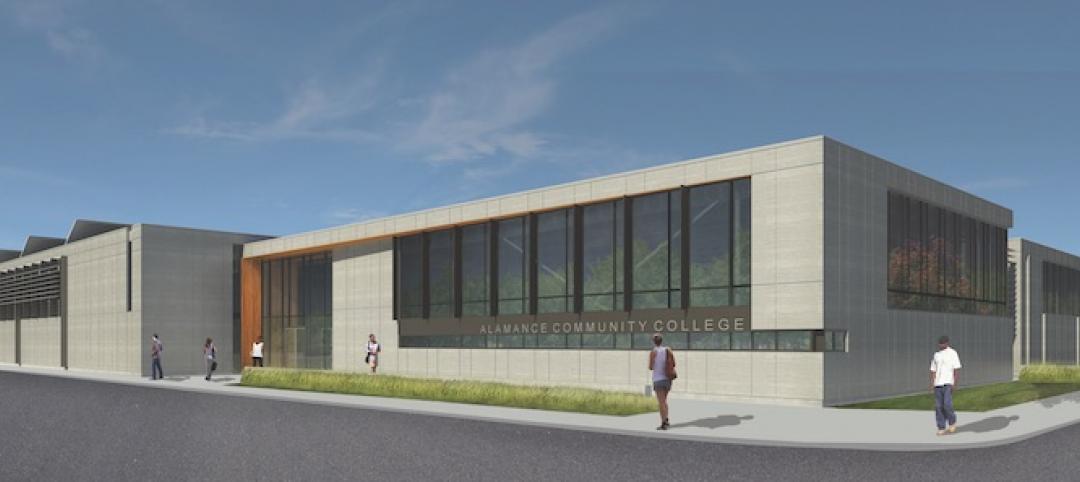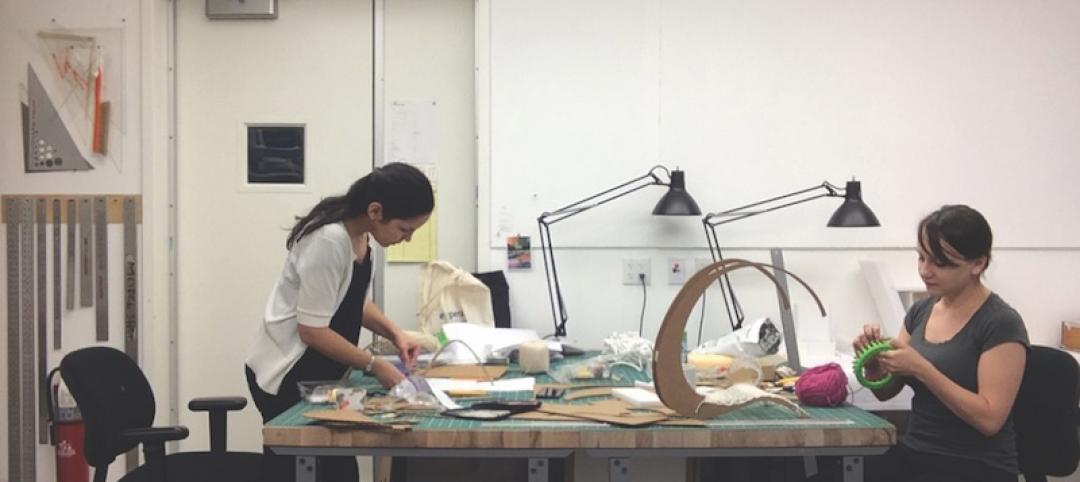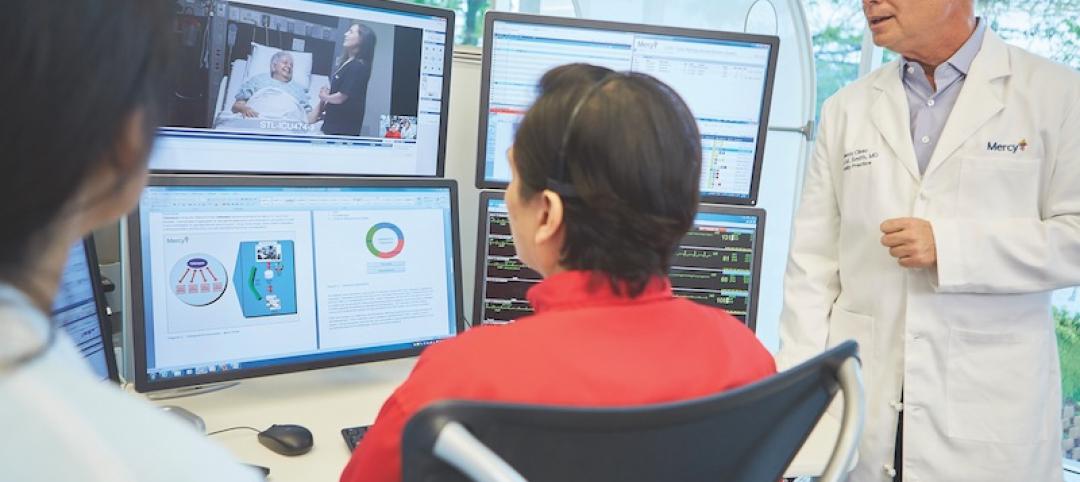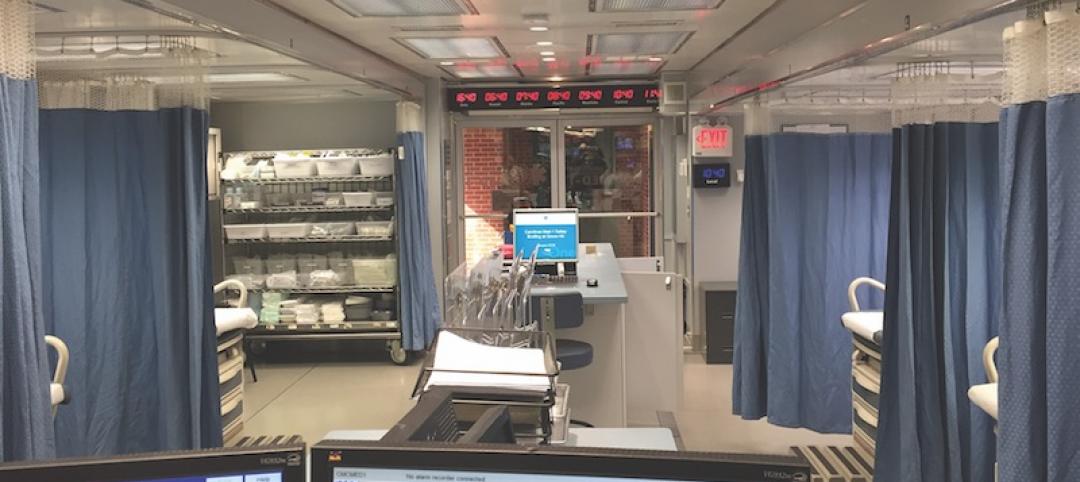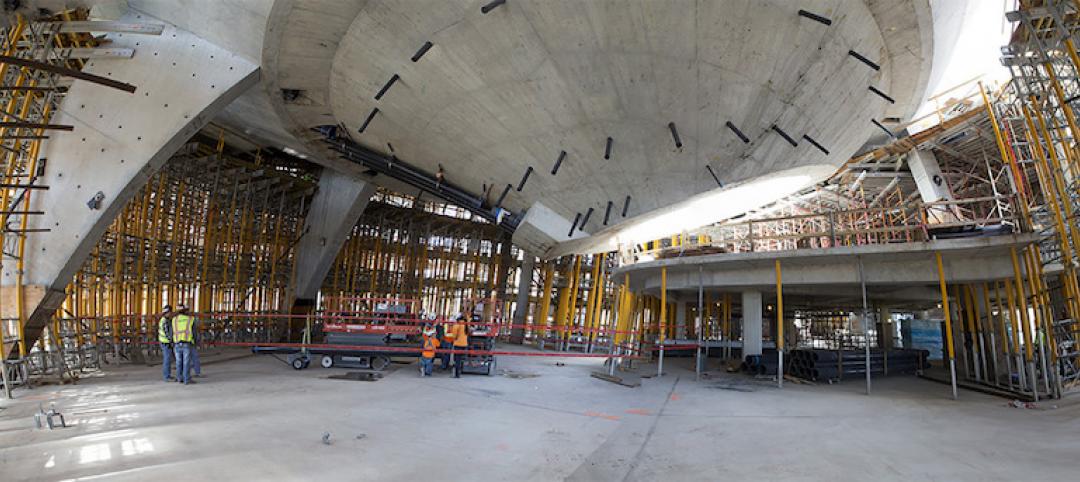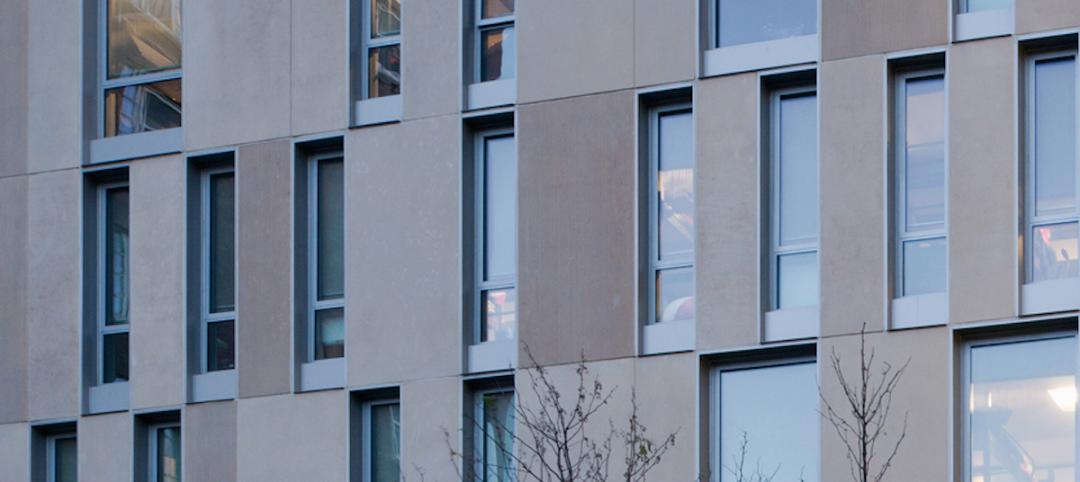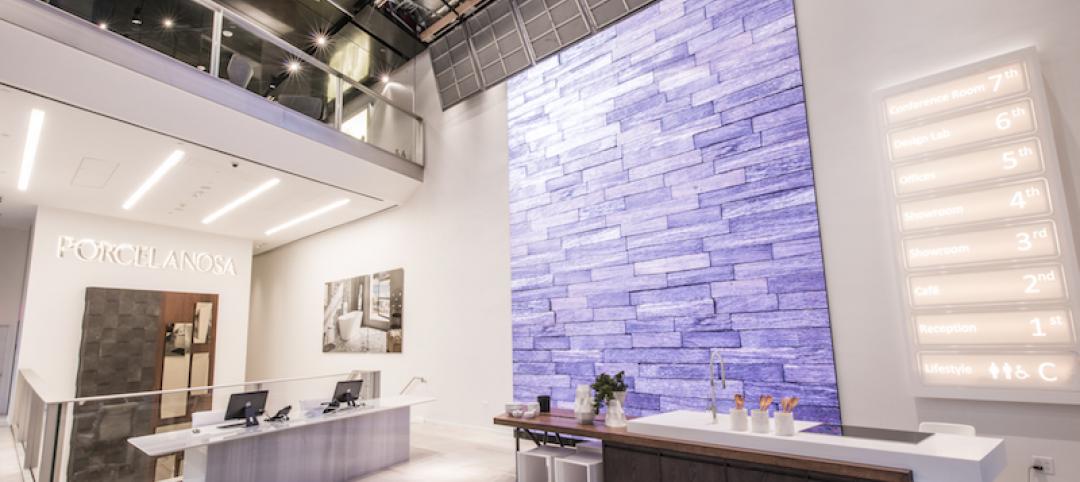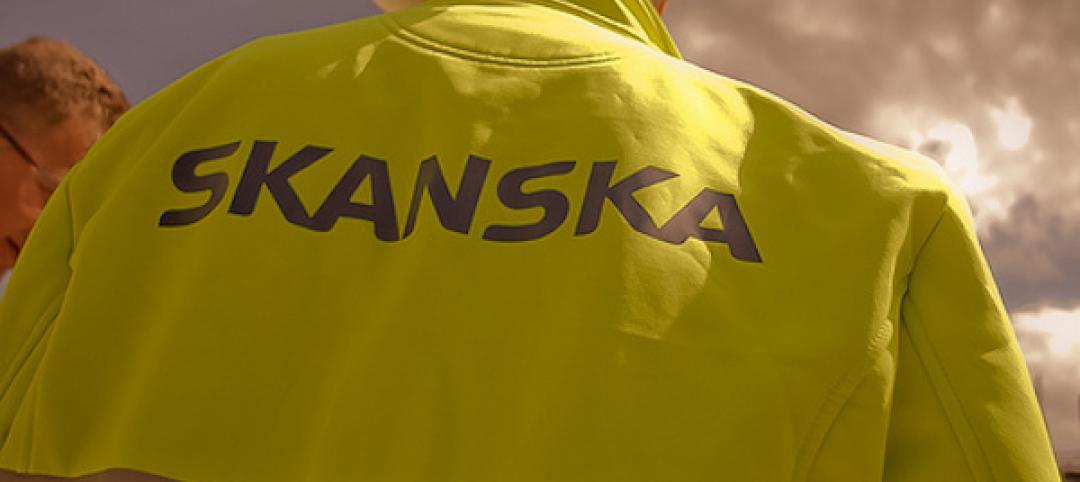Imagine you are standing in an elevator, patiently waiting to arrive at your floor. Before you arrive at your destination, the cab slows to a stop to pick up another passenger.
But as the doors slide open, you see it isn’t another person at all. It’s a robot. After a slight pause, the robot rolls in and selects its desired floor. A few seconds of awkward elevator music later, the doors open again and the robot rolls out without a parting word. You are left standing there, a little confused, a little curious, and just the slightest bit unsettled.
How is it possible that a robot can use an elevator? Well, it’s simple now, thanks to thyssenkrupp Elevator North America’s new robotics interface platform.
Previously, there was no way for delivery robots to operate elevators independently. This limited their use in multistory buildings in urban centers.
But thyssenkrupp’s interface facilitates communication between the robot and the elevator, allowing them to call one and make floor selections like a human passenger.
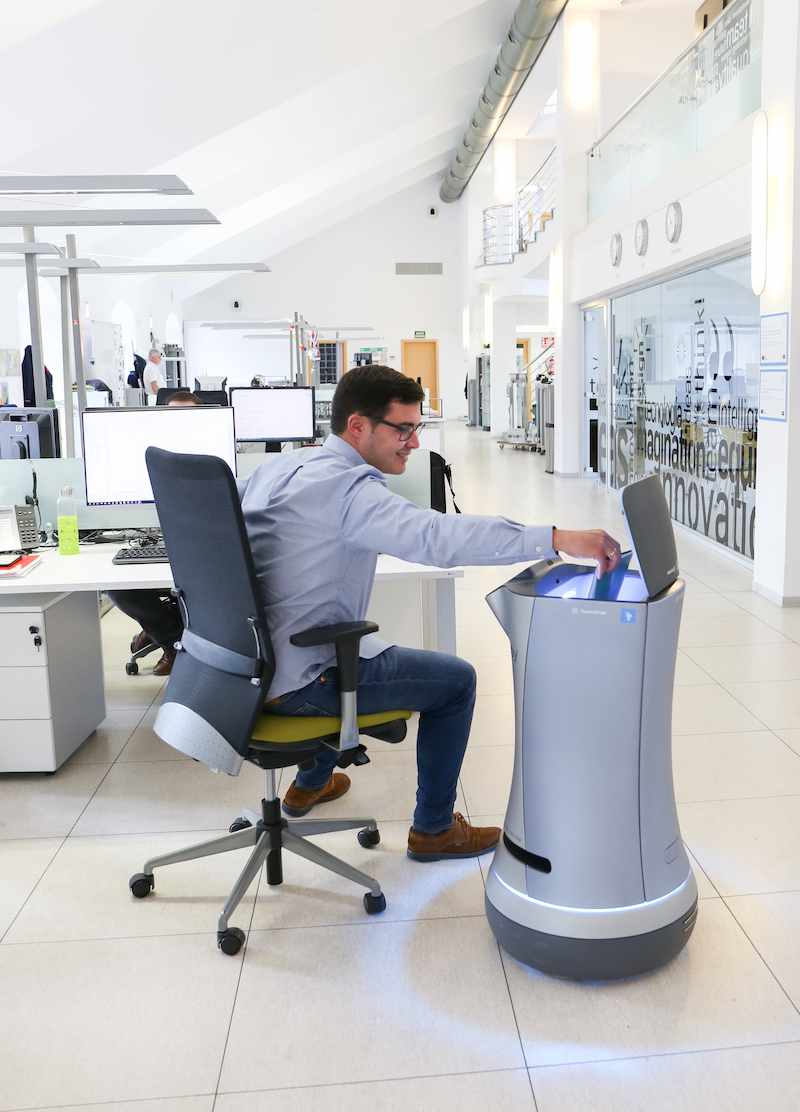
Instead of an R2-D2–like gadget rising from the top of the robot to manually push a button, the interface allows a robot to interact with the elevator wirelessly via Wi-Fi or 4G LTE through thyssenkrupp’s TAC family of controllers. After an elevator arrives, the robot uses Machine Vision to determine if there is enough room to enter or if the cab is full. While the interface is only compatible with the manufacturer’s software and hardware, it can be installed in as little as one day.
See Also: Skanska designs personal protective equipment tailor-made for the female workforce
Thyssenkrupp has partnered with leading robot manufacturers to successfully integrate this technology in several hotel and hospital projects across the country. Robotic elevator interfaces have been used to assist with housekeeping, room and luggage service, security patrolling and concierges, and pharmaceutical and package delivery.
According to thyssenkrupp, incorporating the elevator interface with delivery robots can help building owners manage and improve in-house logistics, increase productivity, and maximize the tenant experience.
This software comes at an opportune time, as the delivery robot market is expected to nearly triple between 2018 and 2024, growing from $11.9 million to $34 million, according to a study by Markets and Markets.
Related Stories
Great Solutions | Aug 23, 2016
Biophilic pods beat the shade when it comes to outdoor cooling
The Xylem concept by CallisonRTKL regulates outdoor thermal comfort through shading, air movement, water circulation, and a vegetated roof.
Great Solutions | Aug 23, 2016
Mini-grant R&D program pays off in a big way for AE firm
Created through funding from Little’s LaceUp program, the Center for Building Performance has helped the design firm win 14 new jobs since its inception.
Great Solutions | Aug 23, 2016
At Beyer Blinder Belle everyone’s seeing RED
The firm’s R&D initiative inspires its designers to develop ideas that could positively disrupt the practice.
Great Solutions | Aug 23, 2016
Virtual care facility serves remote patients, may reduce readmissions
Mercy’s new high-tech medical center equips its medical professionals to deliver care at the bedside of patients anywhere.
Great Solutions | Aug 23, 2016
11 great solutions for the commercial construction market
A roll-up emergency department, next-gen telemedicine center, and biophilic cooling pods are among the AEC industry’s clever ideas and novel innovations for 2016.
Great Solutions | Jan 20, 2016
13 great solutions for commercial construction
As these 13 innovations for the AEC marketplace demonstrate, sometimes a problem can be a good thing.
Great Solutions | Jan 20, 2016
Digitally fabricated concrete formwork pushes the limits of what can be cost-effectively constructed in concrete
Simpson Gumpertz & Heger and CW Keller use 3D modeling and CNC machining to advance concrete construction.
Great Solutions | Jan 20, 2016
Sasaki Associates develops simple yet novel solution for precast concrete complication
Its double-angle cladding anchor maintains the air/water/vapor barrier integrity and continuous insulation while still allowing for the desired versatility of precast panels.
Great Solutions | Jan 20, 2016
Porcelanosa’s solid-surface product, Krion, used to create an elegant retractable ceiling for NY showroom
Typically used for countertops, vanities, and furniture, Krion was used to make 39 panels covering 1,300 sf of ceiling space above the showroom.
Great Solutions | Jan 20, 2016
Skanska’s new app helps construction teams monitor and meet environmental quality standards while renovating hospitals
App allows users to track noise, differential pressure levels, vibration, and dust


